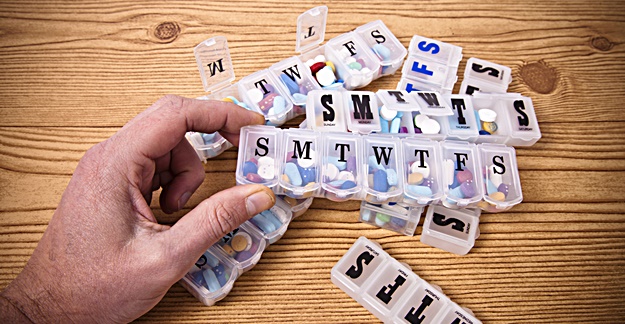When your doctor prescribes drugs you don’t need, you have been overprescribed. Even 1 medicine can be too much when it’s the wrong one.
When your healthcare provider prescribes a drug you don’t need, it has been overprescribed.
Most often we think of overprescribing when someone is taking 8, a dozen or more pills a day. But in reality, even 1 medicine can be too much when it’s the wrong one.
Many doctors are “deprescribing” drugs. Deprescribing is the process of backing off medicines thoughtfully. Speaking at the “Prevent Overdiagnosis” conference in Quebec, Canada, last August, Krista Margeson, MD, spoke about reviewing her patients’ drugs.
It was common to find them taking a medicine for which she can find no reason for them to take it — the symptoms have cleared up or the illness resolved but the patient was never told to stop taking the medicine. Dr. Margeson most often deprescribes antidepressants and diabetic medicines because of the high risk of side effects.
Are you now looking at a pill in your hand thinking, “Do I really need this?” Never stop taking a medicine without consulting your doctor. Many drugs should not be stopped abruptly, even when you’re done with them. When you talk to your doctor about “deprescribing,” here are some questions to ask that might clarify:
- Why was I prescribed this pill?
- How long have I been taking it?
- Do I still have the condition that cause me to start taking it?
- Does it work? Is it treating the symptom, reducing risk or managing a disease effectively?
- Can it cause harm?
- Is there an alternative — a lower dose, a change in diet?
Dr. Margeson suggested using the website Medstopper to identify possible drugs to ask your doctor about. From the site: “Medstopper is a tool to help clinicians and patients make decisions about reducing or stopping medications. By entering the list of medications a patient is receiving, Medstopper sequences the drugs from “more likely to stop” to “less likely to stop,” based on three key criteria: the potential of the drug to improve symptoms, its potential to reduce the risk of future illness and its likelihood of causing harm. Suggestions for how to taper the medication are also provided.”
Again, stopping medicines should be done with as much thought and care as starting them.







